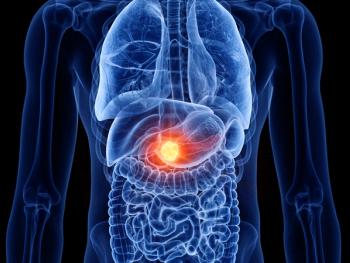
Patients with pancreatic cancer who took benzodiazepine lorazepam had a shorter progression-free survival than those who took benzodiazepine alprazolam.

Patients with pancreatic cancer who took benzodiazepine lorazepam had a shorter progression-free survival than those who took benzodiazepine alprazolam.
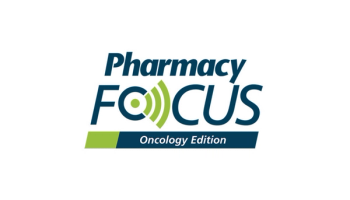
This month, we spoke with Cassia Griswold, PharmD, a clinical oncology pharmacist at Mayo Clinic Arizona.

Pharmacists can offer valuable information about sunburn, sunscreen, and skin cancer screening and provide OTC recommendations on sunburn treatment and prevention.

Opportunities for an additional specialization in molecular pathology may be helpful to train professionals in the real-time interpretation of gene therapy test results.

Based on results from a trial of repotrectinib in patients with ROS1-positive locally advanced or metastatic non-small cell lung cancer, the FDA accepted the New Drug Application and set a Prescription Drug User Fee Act goal date of November 27, 2023.

Annual NCODA Oncology Institute brings together leaders in industry to speak with leaders in clinical practice to discuss some of the commonalities and areas of opportunity to address challenges facing oncology professionals.
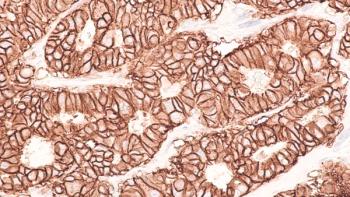
The combination regimen showed positive progression-free survival results among patients with HER2-positive breast cancer in the phase 3 HER2CLIMB-02 trial, but overall survival data have yet to mature.

Melphalan/hepatic delivery system (Hepzato Kit; Delcath Systems Inc) is currently the only liver-directed therapy approved by the FDA for the treatment of netastatic uveal melanoma and percutaneous hepatic perfusion.

Unexpectedly, a study found that more than 70% of cancer survivors were current drinkers, indicating the need for intervention and strategies to reduce harmful drinking habits.

New data have resulted in updated guidelines for neoadjuvant cemiplimab.

Session at NACDS Total Store Expo discusses how pharmacies can leverage their accessibility to decrease diet-related diseases through health and wellness.

Elranatamab-bcmm (Elrexfio; Pfizer) is a BCMA-CD3-targeted bispecific antibody approved for adults with relapsed or refractory multiple myeloma who were previously administered at least 4 lines of therapy that included a proteasome inhibitor, an immunomodulatory agent, and an anti-CD38 monoclonal antibody.

Study authors note that additional research is necessary to confirm findings and identify biological pathways of associations between sweetened beverages and diseases of the liver.

Niraparib and abiraterone acetate (Akeega; Janssen Pharmaceutical Companies of Johnson & Johnson) is the first-and-only dual action tablet that combines a PARP inhibitor with abiraterone acetate administered with prednisone.
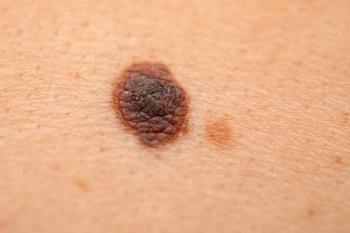
In the COLUMBUS study, the FDA requested that the investigators evaluate the contribution of binimetinib while maintaining the same dosage of encorafenib at 300 mg to confirm the benefits of the combination.
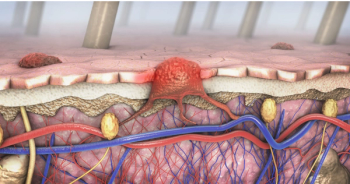
Precision therapies, although effective in earlier stages, may not work later.

Findings may have therapeutic implications because of the potential to target neurotransmitters to treat or prevent melanoma.

Microgravity provides researchers with a unique environment for studying how cells behave differently than they do on Earth.

Talquetamab-tgvs (Talvey) is a first-in-class bispecific antibody that binds to GPRC5D and CD3 to induce T cell-mediated killing of GPRC5D-expressing multiple myeloma cells.

With the continued advancement and approval of cell and gene therapies, the need for trustworthy microbiology quality control solutions is at an all-time high.

After carboplatin joined the growing list of drug shortages, staff pharmacists acted to minimize the impact on patients.

Researchers found an increase in patients with melanoma who experience chronic immune-related adverse effects at 18 months compared to a previous study with a follow-up point of 6 months.
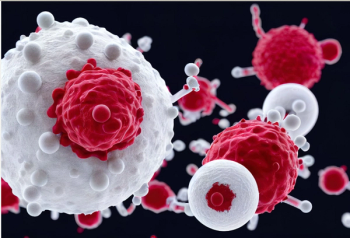
Pharmacists will play a significant role in TKI adherence rates among patients.

Adding human papillomavirus genotypes to the predictive model had a significantly higher effect in improving accuracy compared to adding epidemiological factors and pelvic examination.

Although additional studies are needed, findings indicate that mtDNAfb may be a useful biomarker for future risk of non-Hodgkin lymphoma.

Though an association was found between depression and anxiety and lung cancers, there were no connections found to overall, breast, prostate, colorectal, and alcohol-related cancers.

Lisaftoclax is a novel, oral, small-molecule, BCL-2 selective inhibitor being evaluated for treatment of relapsed/refractory chronic lymphocytic leukemia or small lymphocytic lymphoma.

Study finds patients with cancer feel reassured that biosimilars provide a safe, adequate, and cost-effective alternative to the pricier reference drug.

Early safety studies of NK-cell infusion have demonstrated the potential of NK-cell infusion, showing it may be the next revolution in cancer treatment.
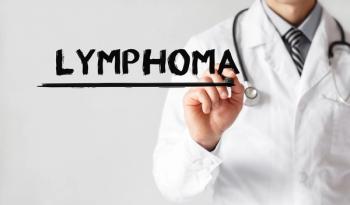
At a median follow-up of 48.7 months, pembrolizumab monotherapy produced an investigator-assessed objective response rate of 41.5% and a 20.8% complete response rate in patients with relapsed/refractory primary mediastinal large B-cell lymphoma.